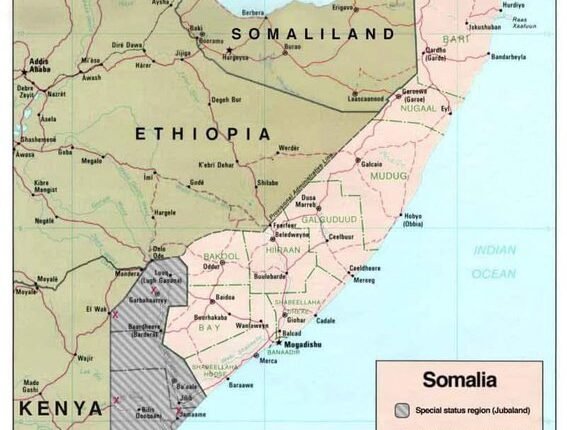In 2017, the international community directed its attention to Kenya when its Supreme Court, led by Chief Justice David Maraga, made history. In a groundbreaking and historic ruling, the court nullified the result of a presidential election due to electoral irregularities on the basis of contraventions of the Constitution and the electoral law. For many, this decision wasn’t just a triumph of law over politics it was an expression of principle, affirmation that African democratic institutions were capable of holding leaders accountable.
Nearly a decade later, the name Maraga is back in the headlines not on the bench, but maybe on the ballot. A rising wave of young Kenyans frustrated with decades of institutionalized corruption, dynastical politics, and economic gloom have rallied around David Maraga’s vision as a 2027 presidential candidate. Dubbed “Maraga the 6th” a play on the fact that he would be the sixth president of Kenya the movement is a powerful generation shift reorganizing political activism across the country.
Unlike the familiar faces that occupy Kenya’s political elite, Maraga offers a different picture. He is not a career politician. He is not a politican from political dynasties. His legacy is in law, honesty, and moral bravery.
Following the 2017 judgment, Maraga stood firm in the face of political pressure. He used the Constitution, not personal interest, as his guiding star. He was threatened, lambasted, and even ostracized but never compromised. To a generation of young Kenyans watching their future being eaten away through corruption and economic despair, Maraga was a light of what leadership is: decent, accountable, and independent.
Kenya is a youth nation not just in terms of history, but in terms of population age. Over 75% of the nation is below the age of 35, reports the Kenya National Bureau of Statistics (KNBS). This youth majority is increasingly vocal about what matters to them: employment, corruption, access to education, and access to the internet.
In a 2024 University of Nairobi survey, 68% of Kenya’s youths said they have no trust in backroom politicians. Most believe that today’s ruling elite has lost touch with the realities of ordinary life from the rising cost of living to unemployment. Young people are, however, searching for the “outsiders”: technocrats, activists, and reform leaders who offer change above rhetoric.
This change is not simply digital rhetoric. Younger politicians and independents began making gains in metropolitan constituencies during the 2022 and 2023 by-elections. The popularity of applications like TikTok, Twitter/X, and Instagram has given Gen Z and Millennials new instruments for mobilizing, criticizing, and campaigning around and alongside mainstream media and party channels.
What makes David Maraga a good contender for this new vote block is not his background in itself but his temperament. He doesn’t scream. He doesn’t insult opponents. He doesn’t strut on stages and make empty promises. Instead, he listens, speaks slowly, and keeps mentioning the rule of law.
His detractors aver that Maraga lacks political charm or grassroots networks on which to mount a believable campaign. But his supporters see this as strength, rather than weakness. In their view, Kenya does not need a populist of the caliber, for instance, of Michael Wamalwa; Kenya needs a principled caretaker. To them, Maraga’s unflashy integrity is what Kenya’s raucous, boisterous politics needs.
Youth groups like Sauti Yetu, GenZ for Justice, and Vijana Watchdog have already begun spreading Maraga’s name in virtual spaces and public spheres. Hashtags like #MaragaThe6th and #Integrity2027 have cropped up sporadically in 2025, indicating a groundswell of organic support for an unconventional candidacy.
Though there is tangible excitement, there are harsh realities. Maraga himself has not said what he wants to do politically. As a retired judge, taking up active politics would be a quantum leap and it would expose him to the very machinery he once defied. Besides, Kenya’s politics is an alliance-based, ethnicity voting block, high budget campaign machinery system.
Can Maraga descend to that level of sleaze? And if he does descend, can he then maintain the moral high ground that makes him so appealing?
And then there is the possibility of co-optation. Kenyan politics has been practicing this for decades, swallowing reformers and dulling their cutting edge. If Maraga enters the fray, can he build a movement bigger than himself a movement big enough to change Kenya’s leadership for good?
As Kenya approaches the 2027 general election, the stakes could not be higher. The nation is grappling with a cost-of-living crisis, rising debt, unemployment among young people, and growing distrust of public institutions. At the same time, there is new civic energy notably among the youth no longer content to sit on the sidelines.
Whether David Maraga runs or not, the flood of support for his leadership reflects a deeper hunger in Kenya: a hunger for honest government, moral leadership, and a future not built on borrowing to corruption.
If Maraga the 6th becomes more than a catchphrase and it becomes a movement then 2027 may not be just another election. It might be the turning of the page in the story of Kenya’s democracy.
Maraga the 6th: Kenya’s Former Chief Justice and the Youth Led Movement for Reform in 2027



